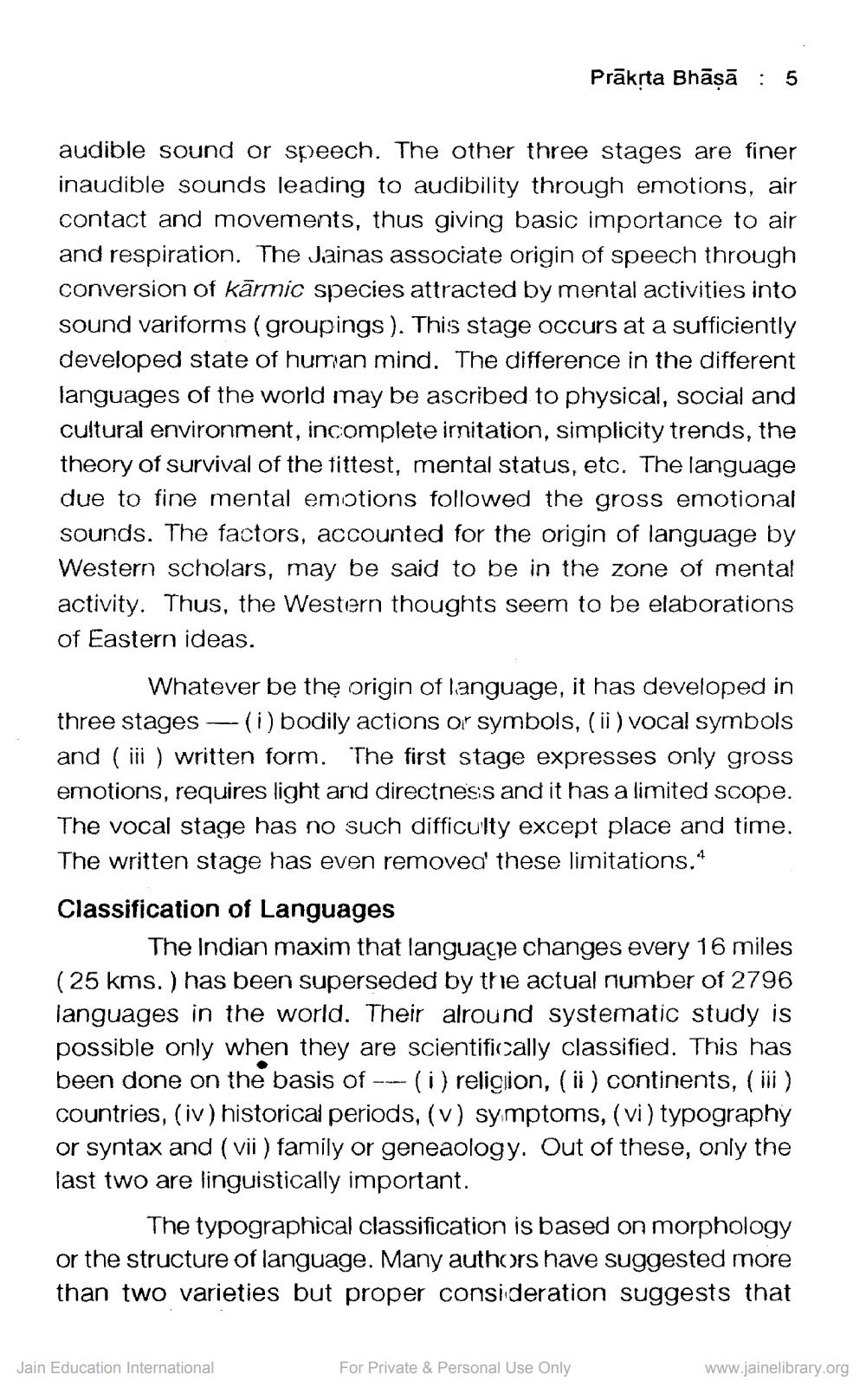________________
audible sound or speech. The other three stages are finer inaudible sounds leading to audibility through emotions, air contact and movements, thus giving basic importance to air and respiration. The Jainas associate origin of speech through conversion of kārmic species attracted by mental activities into sound variforms (groupings). This stage occurs at a sufficiently developed state of human mind. The difference in the different languages of the world may be ascribed to physical, social and cultural environment, incomplete irnitation, simplicity trends, the theory of survival of the fittest, mental status, etc. The language due to fine mental emotions followed the gross emotional sounds. The factors, accounted for the origin of language by Western scholars, may be said to be in the zone of mental activity. Thus, the Western thoughts seem to be elaborations of Eastern ideas.
―――
Whatever be the origin of language, it has developed in three stages (i) bodily actions or symbols, (ii) vocal symbols and (iii) written form. The first stage expresses only gross emotions, requires light and directness and it has a limited scope. The vocal stage has no such difficulty except place and time. The written stage has even removea' these limitations.4
Prākṛta Bhāṣā: 5
Classification of Languages
The Indian maxim that language changes every 16 miles (25 kms.) has been superseded by the actual number of 2796 languages in the world. Their alround systematic study is possible only when they are scientifically classified. This has been done on the basis of (i) religion, (ii) continents, (iii) countries, (iv) historical periods, (v) symptoms, (vi) typography or syntax and (vii) family or geneaology. Out of these, only the last two are linguistically important.
The typographical classification is based on morphology or the structure of language. Many authors have suggested more than two varieties but proper consideration suggests that
Jain Education International
For Private & Personal Use Only
www.jainelibrary.org




